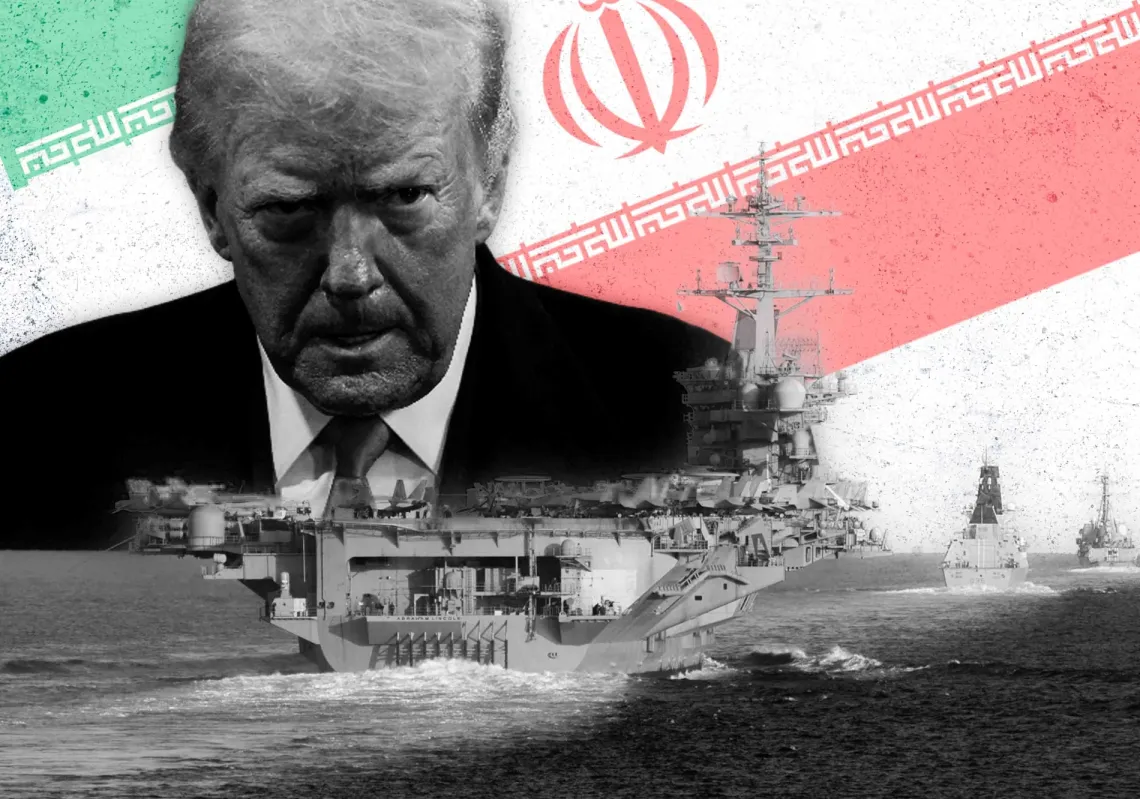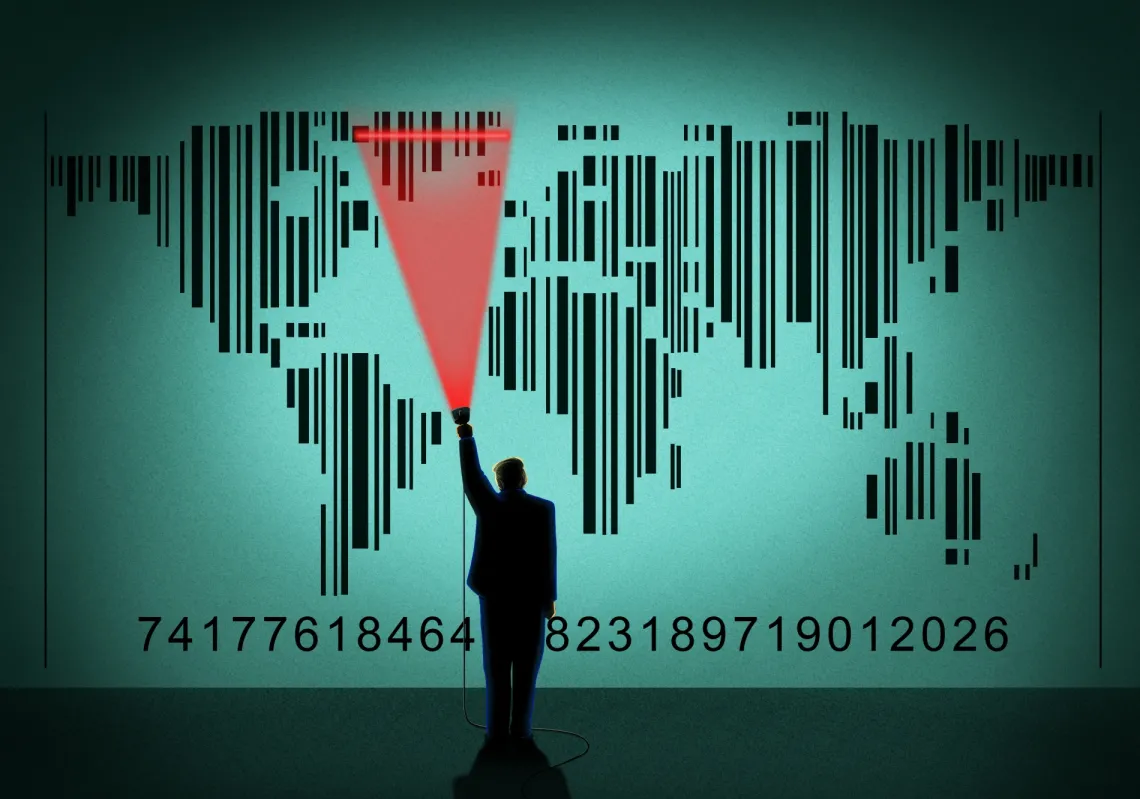 Sultan Abdul Hamid II, the 99th caliph and the last sultan to exert effective control over the Ottoman Empire.[/caption]
Sultan Abdul Hamid II, the 99th caliph and the last sultan to exert effective control over the Ottoman Empire.[/caption]
For 1,300 years, the caliphate was the dominant political system in the Arab Islamic world. It was embedded in the Islamic consciousness for so long it became the model of government and was linked in both private and public memory with the glories of Islam and its greatest conquests.
However, by the early twentieth century a powerful perception developed among Arab Muslims that Islam was being endangered by a conspiracy orchestrated by the dominant anti-government group in Ottoman Turkey, the Committee of Union and Progress, which had ties to the Young Turks movement. Despite the diminished role of the caliphate toward the end of the Ottoman period, and indeed the opposition of many Arabs to it, the Muslims of the empire were concerned for the future of political Islam. In 1922, these fears were realized when the newly formed Turkish Grand National Assembly abolished the Ottoman Sultanate. The assembly claimed that political power in Islam had no foundation in religion and that power ought to be determined by the will of the people.
This was nothing compared to what followed. In 1924, Mustafa Atatürk abolished the caliphate altogether. He sent the caliph into exile and shut down the Awqaf (religious endowments) and Shari'a ministries, transformed religious schools into government ones and declared Turkey a secular state. He reasoned that the caliphate had lost its legitimacy after Muslim nations fought against it in the First World War and that it had become a burden, draining the finances and the men of Turkey, as well as becoming an obstacle to the modernization of the country.
[caption id="attachment_55246471" align="alignleft" width="276"]
 Mustafa Kemal Atatürk[/caption]
Mustafa Kemal Atatürk[/caption]
At this time, the Ottoman caliphate was going through one of its worst periods. It was fragmented and divided, a faint shadow of what it once was. However, Atatürk’s decision revitalized the idea of the caliphate in the imagination of the Islamic world, as many felt they wanted to hoist up the flag of Islam once again, even as Islamic society entered a period of decline.
This scene of decline was described by the writer Abdul Ghani Al-Rahal in his book The Islamists and the Illusion of Democracy: A Comprehensive Study of the Islamists’ Participation in Representative Councils . “After the sun set on the caliphate in 1924 the Islamic nation became like an orphan,” he wrote. “It disintegrated, its parts were scattered and the nation had to put the Shari'a law aside and adopt imported circumstantial human laws. Corruption was rife, and war spread among the Muslims.”
In modern Islamic political theory, the caliphate is a very potent symbol. The memory of the caliphate remains stuck in the shock of Atatürk’s decision, weaving a web of longing and emotion to bring back the glory of that political model in the present day. Today, many movements have been established that aim to resurrect the caliphate. Some want to establish a new caliphate immediately, whereas others rely on gradual change.
The Tunisian scholar Tahir ibn Ashur, who lived through the end of the Ottoman caliphate, clarified its role in Islamic thought: “The caliph is almost the successor to the Prophet in establishing Shari'a, protecting religion, and ensuring it is followed by all people. It is an expression of the Islamic nation’s commitment to preserving the principles upon which the Islamic state was founded. It is the only system that truly draws the whole Islamic world together under the promise of defending its interests and protecting its property.”
The caliphate became the form of government on which Muslim society came to depend. As a direct result of the caliph’s fall, the first mass Islamist movement, founded in 1928, had the re-establishment of the caliphate as its fundamental aim.
For example, take the speech written by Hassan Al-Banna, the founder of the Muslim Brotherhood, for the movement’s fifth conference: “The Muslim Brotherhood has placed the idea of the caliphate and the work to reinstate it at the top of our priorities. They believe that this requires many essential preparations and that the reinstallation of the caliph will require many steps.”
On March 3 this year, the Egyptian newspaper Al-Yawm Al-Saba'a published a statement by the Brotherhood’s general guide, Mohammed Badie: “We are working to revive the caliphate as soon as possible. . . . The re-establishment of the caliphate is one of the interim goals identified by Imam Hassan Al-Banna to achieve the movement’s ultimate goal, which is that the Islamic nation and that Shari'a should rule once again.”
The philosophy behind the caliphate
We ought to be clear that the image of the caliph exalted by many Islamist movements today differs slightly from the stylized, traditional image of the caliph—where there is one person and his entourage—as the stereotypical images transmitted to us over history would have us picture him. Instead the modern image of the caliphate has adopted two fundamental objectives. First is that the religious authorities and the secular need to be united behind a singular vision, as well as the necessity of obedience to this vision as the legitimate representative of God and the legislator in Islam. Second is that the caliphate should encompass the entire expanse of the Islamic world with no fixed geographical borders or artificial national ones.
Elaborating on the second point, the Sudanese writer Abdullah Al-Sadiq wrote that Banna’s thinking was in line with that of prominent Pakistani theologian Abul A'la Maududi in calling for the return of the Islamic caliphate. Sadiq even went further, stating that “the return of the lands ruled under Islam from the first century after the Hijra is a religious obligation, as well as the Balkans, the Caucasus and Al-Andalus—now Spain and Portugal.” The notion of the caliphate for Islamist movements is not simply a method of governing a defined, national entity, it is an ideology based on the legacy of the past.
While these questions continue to rage in the background of the events of the Arab Spring an old book, published in 1925, once again has striking relevance. The book criticized political Islam as lslamist movements scrambled to reestablish the caliphate following the fall of the Ottoman Empire. It was in these moments, when the struggle between religion and state first raged in Islamic thought, that Al-Azhar Sheikh Ali Abdel Razeq completed his Islam and the Foundations of Political Power. Razeq was one of the figureheads of the enlightenment movement and the Islamic thinker who most rattled established Islamic thought and institutions.
[caption id="attachment_55246394" align="alignright" width="194"]
 Islam and the Foundations of Political Power[/caption]
Islam and the Foundations of Political Power[/caption]
Following Turkey’s decision to abolish the caliphate, there was considerable division within and among Islamic countries as they struggled to come to terms with what had happened. A number of Arab and Islamic leaders appeared eager to fill the vacant position of caliph. In 1925, Egypt’s Al-Azhar University called on a number of religious scholars to attend a conference in Cairo to discuss what should be done about the caliphate. The conference concluded with a number of resolutions stating that the caliphate was necessary for Muslims as a symbol of their unity and society. The scholars stated that in order for the caliphate to be effective, the caliph had to hold both religious authority and worldly power. At the same time, there was a movement to nominate King Fouad—the king of Egypt and Sudan following Egyptian independence in 1922—as the next caliph.
The implications of Razeq’s book reverberated throughout Egypt. It was audacious in its contrast to prevailing Islamic thought at the time. The book contradicted the feeling of heartbreak that had spread through the Islamic world after the fall of the caliphate, and posed questions that formed a milestone in Islamic political discourse. At its core, the book asked whether any part of the concept and reality of the caliphate was a true component of Islam. Is there anything called a system of government in Islam? Is Islam both a state and a religion?
Razeq argued that the caliphate did not have its roots in Islam, that it was a political entity rather than a religious one and that there was nothing in the Qu'ran or the hadith that confirmed the need to inaugurate or choose a caliph. Razeq even went so far as to say that “the caliphate was, and still is, a catastrophe that befell Islam and Muslims.”
At the time, the book created quite a stir and many scholars rebuked Razeq’s assertions. Unsurprisingly, King Fouad feared that Razeq’s book might prevent him from becoming caliph, so he swiftly handed down harsh rulings to Razeq with the consensus of the scholars at Al-Azhar. Together they decided to expel him from the university, dismiss him from his position at the judiciary and withdraw his diploma from Al-Azhar.
Is Islam a religion and a state?
Razeq set out to disprove the theory that Islam is a state as well as a religion. A student of Al-Azhar and Oxford, he was acutely aware of the problems that such a dualism created, particularly for the future of the modern nation of Egypt that had to find a new form of government.
His book and its original, serious and, at times, humorous ideas heralded the start of an intellectual and political battle in traditional Muslim society. Razeq had challenged the views of ordinary Muslims, as well as scholars who held that Islam was a political entity. Razeq did not tire of refuting the widespread claim that the caliphate is a religious institution; instead, he saw it as one of the common misconceptions that had spread throughout the Muslim populous. Razeq felt that the continuation of this belief was to be expected, as he felt he was witnessing the abdication of common sense among Muslims regarding political thought and everything that involved the caliphate and the caliphs.
He explained that “the perception supported by common sense and witnessed by history, both modern and old, is that the establishment of religious rites does not depend on what professors call the caliphate, or on those who people call caliphs. In fact, Muslims’ interest in their religion does not depend on anything like it—we do not need the caliphate to govern our religion or our world.”
Ali Abdel Razeq points out that the texts of the Qu'ran and the sunnah (the traditions of the Prophet) make no mention of the caliphate: “I have not found, among the writings of scholars who support the establishment of the caliph, anyone who tries to support his claim with a verse from the Qu'ran. Were there a single mention of it, then the scholars would not have hesitated to note it and point it out. Or, were there in the Qu'ran something resembling a mention of the necessity of the Imamate, then we would have found one of the caliphate’s supporters turning something like a mention into a mention. But these fair-minded and articulate scholars have failed to find a single argument for their views in the Qu'ran.”
He again emphasized that the caliphate was not a religious institution, and that what was said in this regard was clear propaganda for a misconception that furthered the interests of the sultans: “It was in their interests to propagate this error among the people to take protection from religion for their throne and to make people believe that obedience to the Imams came from obeying God, and disobeying them was like disobeying God.” While “the caliphate has nothing to do with religion, neither does the judiciary or any other government or civil service position. These are all political and have nothing to do with religion at all.”
Why did political science decline among Muslims?
In his commentary on the calls for the return of the caliphate, Egyptian writer Salah Issa said that they reflect the Islamist movement’s inability to devise innovative ideas: “They are still trapped in traditional ideals, despite the developments of time. The idea of the caliphate has been outdated since the establishment of the modern state in every Islamic country, and because it has been misused and led to the division of the Muslims.”
However, political science has always been the weakest of all the areas of Islamic science. Razeq investigated that phenomenon eighty-eight years ago. He said that the Arabs had a natural intelligence and scientific endeavor, but that “they stood perplexed at political science and withdrew without really studying it. In their impatience, they overlooked Plato’s Republic, and Aristotle’s Politics, even though they were so enamored with him that they named him the First Teacher. How, then, were the Muslims left in complete ignorance of the Greeks’ principles of politics and types of government?”
Razeq answers this question through his analysis of the tyranny of the king and the sultan during the age of the caliphate. Usually surrounded by spears, swords and mighty armies, it was natural for the sultan to become “a beast, a serial killer, a demon and a giant when his hand conquered those trying to disobey him or undermine his throne. It was also natural for him to be a deadly enemy of any scientific research that he imagined could threaten his power. He, therefore, put pressure on the freedom of science and learning, and the most at risk was political science.”
The near-daily calls for the return of the caliphate are clear evidence that Razeq’s book failed to change reality, even though his message made sense. As Lebanese researcher Radwan Al-Sayed says, Islam does not present a political system required by religion, but this impression has been formed by historical confusion and demands from the sultan and religion.
Sayed believes that Razeq failed to stir up an attitude of reform towards the state and public affairs, not because he was unconvincing, but because of the “Western imperialism that ruled the Arab Muslim countries. The apparent opposition of the colonialists to the return of the caliphate and the actions of Mustafa Atatürk and the Shah of Iran led the public and some scholars to believe that the nationalistic state was hostile to traditional ways and in league with the colonialists.”
Islam and the Foundations of Political Power and its pertinent, frank questions still ring true today. As the Egyptian writer Amar Ali Hassan put it: “The limit of its relevance has not been reached. It hasn’t been consigned to the annals of history—it’s still with us, as though it had just been written.”









